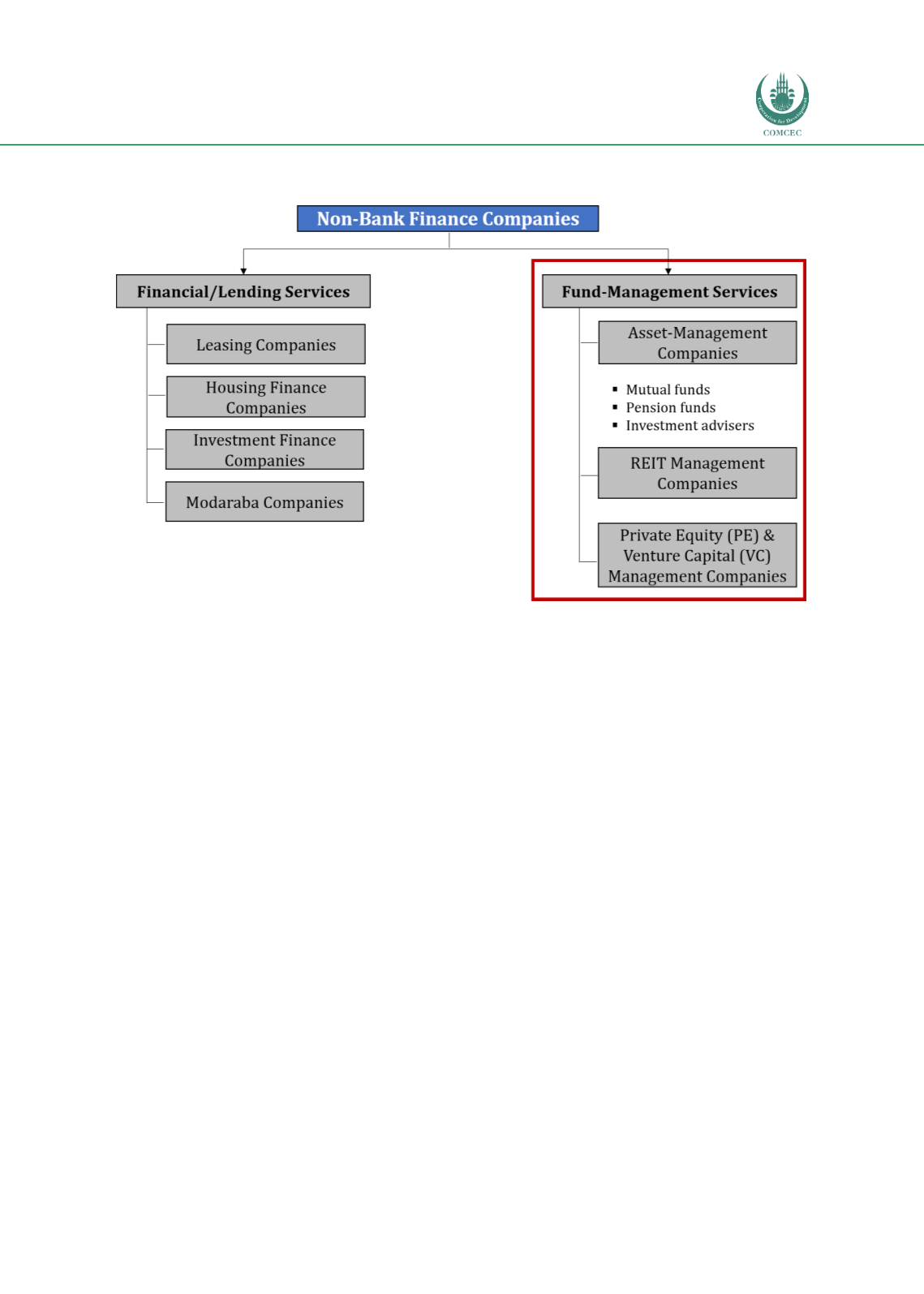

Islamic Fund Management
95
Figure 4.9: Broad Categories of NBFCs in Pakistan
Source: Adapted from Pakistan Islamic Finance Report (2016)
The overall development of the Islamic finance industry in Pakistan lags far behind the
conventional finance market and requires strong regulatory support. This is especially so for
NBFIs/NBFCs that have been dwarfed by commercial banks, which offer similar financial
services at lower costs due to their extensive outreach and economies of scale (Pakistan
Islamic Finance Report, 2016).
As part of the government’s initiatives to spur the growth of Islamic finance in the country, the
SBP issued a Strategic Plan for the Islamic Banking Industry (2014-2018). The SBP targets
Islamic banking assets to account for 15% of the total market by end-2018. The SECP
established the Islamic Finance Department (IFD) in 2015. Its main responsibilities are to
regulate and supervise the Islamic capital market, and to ensure that Shariah-compliant
companies adhere to the principles of Shariah in conducting their business operations. Among
commendable initiatives undertaken by the IFD is the incorporation of provisions pertaining
to Shariah-compliant companies and securities under the Companies Act 2017 (Section 451),
the release of Shariah Advisor Regulations 2017, and the issuance of the Draft Shariah
Governance Regulations 2018 and several Shariah standards of the AAOIFI for adoption and
consultation. In addition, the SECP has also issued the Capital Market Development Plan
(CMDP) (2016-2018), which provides a short-term roadmap for the initiatives envisaged by
the SECP in developing the country’s capital markets within three years.
Box 4.3gives an
overview of the CMDP.
















